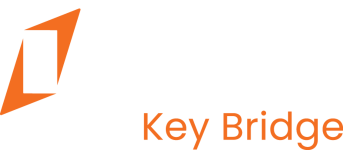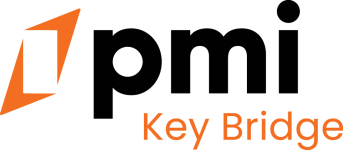Clear lease language is important—but without the right systems to support it, even the most detailed agreement can lead to misunderstandings. In Alexandria’s competitive rental market, a well-structured lease is only as effective as the communication, tools, and consistency behind it. From automation and digital documentation to proactive planning and thorough screening, landlords can avoid costly tenant conflicts by building smarter processes around their lease agreements.
If you’re navigating the challenges of being a local rental property owner, this guide on modern leasing tactics in Alexandria is a great place to start.
Key Takeaways
- Move-in documentation with photos creates a solid foundation for deposit decisions
- Online rent systems ensure timely payments and a reliable record trail
- Lease terms must clearly define pet rules, guest limits, and maintenance duties
- Fair and consistent screening reduces risk and helps find qualified tenants
- All lease modifications should be put in writing to protect both parties
Begin with a Thorough Move-In Inspection
First impressions matter—and so does your move-in documentation. Conducting a detailed inspection before tenants take occupancy is critical for protecting your investment.
A strong process includes:
- A joint walkthrough with your tenant before move-in
- A condition checklist covering floors, appliances, walls, and fixtures
- Time-stamped photos or videos of every room and outdoor space
- Lease clauses that clarify normal wear versus damage caused by tenants
This step sets expectations early and gives you credible documentation for any future disputes over property condition or deposit returns.
Embrace Automated Rent Collection
Chasing down rent payments can be frustrating and time-consuming. An automated rent collection system simplifies the process and helps everyone stay on schedule.
Your rent system should feature:
- Lease terms that outline due dates, grace periods, and late fees
- A secure digital portal where tenants can schedule and send payments
- A digital log of transactions for easy reporting and transparency
If you need help streamlining this process, consider our full-service rent collection solution designed for Alexandria landlords.
Implement a Maintenance Management Plan
Delayed maintenance can lead to property damage and strained relationships. A clear system for handling repairs protects both your investment and your tenant’s experience.
Your maintenance protocol should:
- Allow tenants to submit repair requests online with detailed descriptions
- Include response time guidelines and regular communication updates
- Schedule seasonal inspections or mid-lease check-ins to stay proactive
Consistent oversight doesn’t just prevent costly problems—it also shows tenants you’re attentive and professional.
Define Rules for Pets and Guests
In Alexandria, pet ownership is common—and so are extended guest stays. Your lease should include straightforward guidelines to prevent unwanted surprises.
Key details to include:
- Approved pet types, sizes, and any breed restrictions
- Security deposit or monthly pet rent policies
- Guest limitations (e.g., number of days a guest can stay within a set period)
- Enforcement protocols for violations such as unauthorized animals
Establishing these rules from the beginning helps maintain the integrity of your property while respecting tenants’ lifestyles.
Address Early Termination Scenarios
Life happens—jobs relocate, families grow, plans change. That’s why every lease should be prepared for the possibility of early termination.
Make sure your lease includes:
- A termination clause that outlines financial penalties or notice requirements
- A timeline (usually 30–60 days) for advance written notice
- Permission for you to begin advertising the unit upon notification
Planning ahead protects your income and minimizes downtime between tenancies.
Separate Normal Wear from Damage
Security deposit disputes are common—and many stem from a misunderstanding of what constitutes “normal wear and tear.” Avoid gray areas with specificity.
Clarify the difference by:
- Including examples in the lease (e.g., worn carpet = normal; burn marks = damage)
- Taking dated photos before and after tenancy for comparison
- Conducting a mid-term inspection to catch issues before move-out
This documentation supports fair and lawful security deposit deductions.
Standardize the Screening Process
Tenant selection is one of the most important parts of property management. Applying a uniform process helps avoid costly mistakes and ensures compliance with fair housing laws.
A reliable screening system includes:
- Written criteria for income, credit score, background checks, and rental history
- A scorecard to objectively evaluate every applicant
- Documentation of all decisions and communications for legal protection
If you’re unsure about your current process, learn when to consider working with a property management company to streamline tenant selection.
Document All Lease Changes
Verbal agreements are easily forgotten or misinterpreted. Always document any modifications to the lease in writing to protect both you and your tenant.
Best practices:
- Send email summaries after informal discussions
- Use lease addenda for formal changes like rent adjustments or pet approvals
- Keep all signed documents stored securely for easy access
This creates a clear paper trail and minimizes risk during future disagreements.
Handle Rent Increases with Transparency
Raising rent is sometimes necessary, but how you go about it affects whether a good tenant chooses to stay. Clear communication is essential.
Effective rent increases should:
- Be delivered in writing at least 60 days in advance
- Include a justification, such as rising costs or added property value
- Offer incentives like small upgrades or flexible lease terms to ease the transition
This approach demonstrates professionalism and shows your tenant you value their business.
Clarify Maintenance Responsibilities in the Lease
One of the most common sources of conflict is confusion over who handles what when something breaks. Define responsibilities clearly from the start.
Break it down like this:
- Tenant responsibilities: air filters, minor clogs, lightbulbs, lawn mowing
- Landlord responsibilities: HVAC systems, plumbing, electrical, and roofing
- Emergency repairs: include after-hours contact procedures and timelines
When everyone knows their role, maintenance is smoother and disputes are fewer.
Good Leasing is a System, Not a Guessing Game
Strong leases are more than paperwork—they’re part of a larger system that supports smooth operations, reliable tenants, and long-term profitability. With clear policies, automation, and consistent documentation, Alexandria landlords can reduce risk, resolve issues quickly, and enjoy a more stable rental experience.
PMI Key Bridge offers professional leasing systems tailored to local property owners. If you’re ready to implement the tools and strategies that create results, reach out to our Alexandria team today and discover how we simplify rental management from start to finish.
FAQs
What should I include in a move-in inspection?
Include a signed checklist, dated photos or videos, and notes on any existing damage or condition concerns.
Can I raise the rent during a lease term?
No. You can only raise the rent at lease renewal unless the lease includes a clause permitting mid-term increases under specific conditions.
Is a pet deposit required by Virginia law?
While not required, landlords may charge a reasonable pet deposit or pet rent, provided it’s stated clearly in the lease.
How do I handle unauthorized guests or pets?
Include lease language that outlines consequences such as fines or possible lease violation notices. Always document infractions.
Should I screen every tenant the same way?
Yes. Consistency helps ensure fairness, compliance with fair housing laws, and protection against legal claims.



